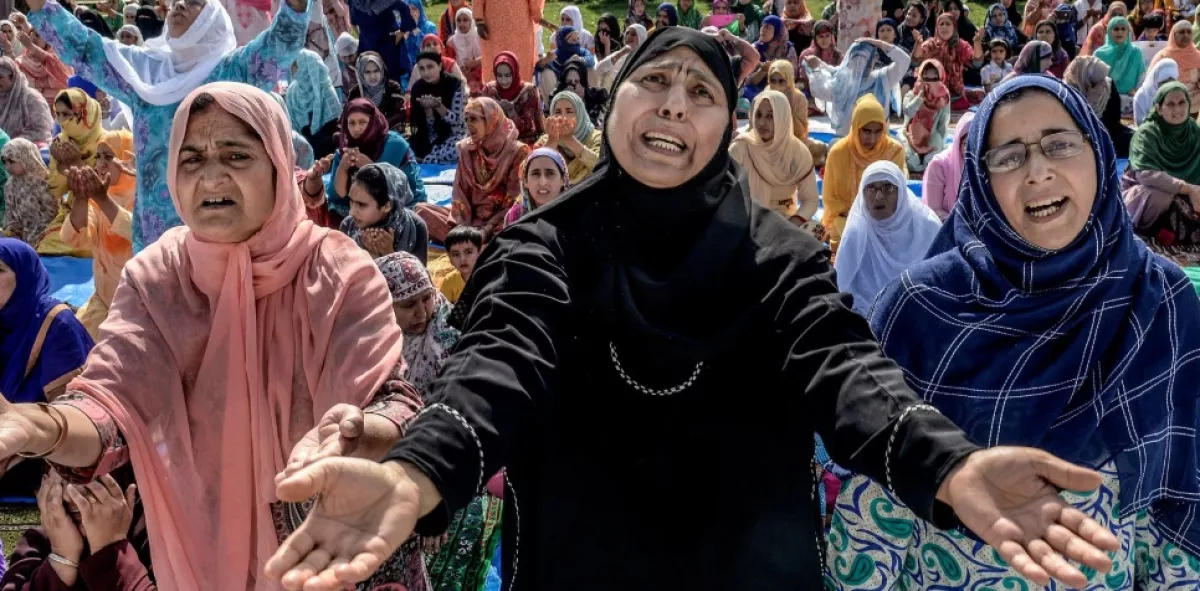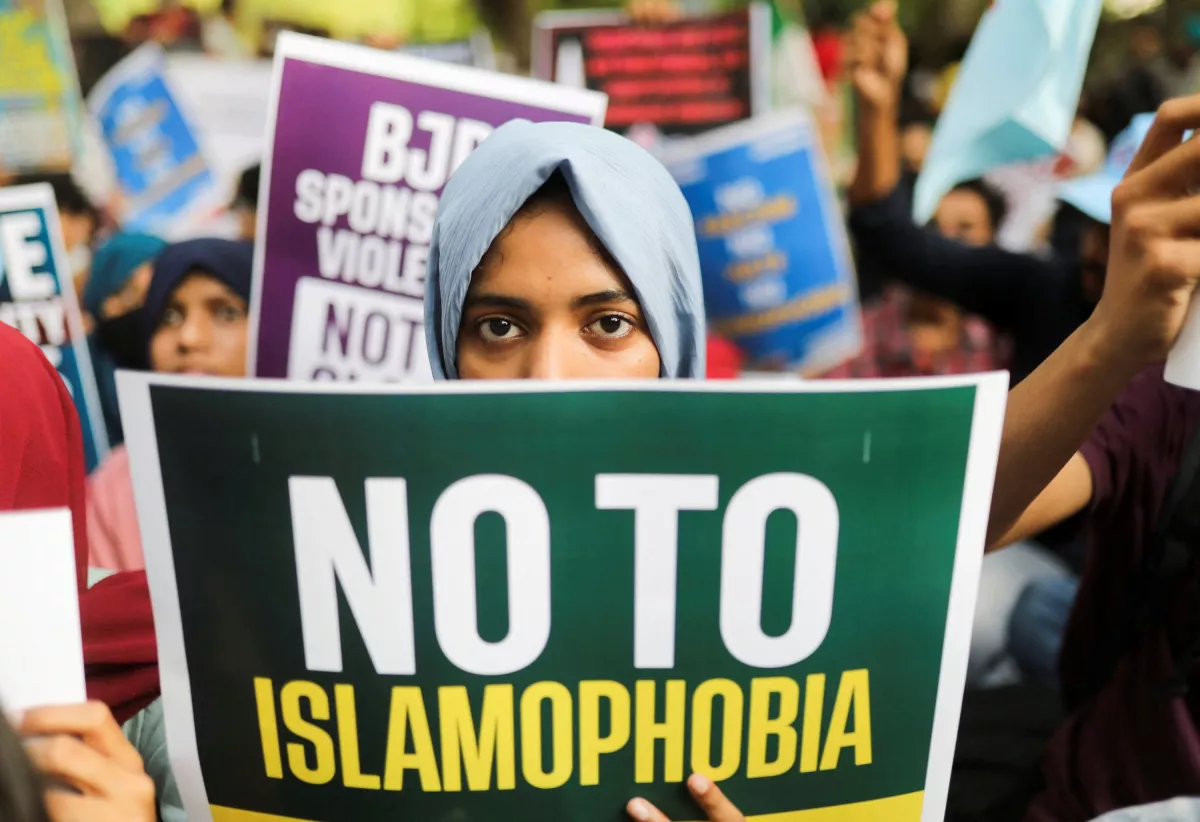Repression under the guise of law and order: Struggles of Muslims in India OpEd by Eurasia Review
The Eurasia Review has published an article by Muhammad Adam Khan on the persecution of Muslims in India. Caliber.Az reprints a slightly shortened version of the article for readability purposes.
“India, once hailed as the world’s largest democracy and a beacon of secularism, has now transformed into a breeding ground for religious extremism. The rise of RSS [The Rashtriya Swayamsevak Sangh, Indian right-wing Hindutva volunteer paramilitary organisation – ed.] and Hindutva ideology has made India one of the most unsafe countries for its minorities, especially Muslims.
In India, Muslims are no longer just citizens; they are now the focus of persecution by the government. In a country that used to take pride in equality and fairness, being a Muslim is now considered a crime.
Every day, Muslims deal with prejudice, brutality, and the enormous might of a government that is determined to repress their civil and religious rights. Bulldozers, internet bans, and mass arrests are drowning out calls for justice from Uttar Pradesh to New Delhi as the government imposes more restrictions on those who dare to oppose.
The Uttar Pradesh administration, led by Chief Minister Yogi Adityanath, recently began a violent crackdown on Muslims in reaction to protests around the country that were triggered by the “I Love Muhammad” campaign.
What started out as a nonviolent act of faith in Kanpur swiftly expanded to Bareilly and other places, leading to widespread arrests, internet bans, and the use of bulldozers as weapons of terror. These tactics, presented as measures to uphold law and order, are in reality a deliberate attempt to intimidate and silence the Muslim community.
A terrifying message is delivered by the harsh response to nonviolent protests, which includes arbitrary detentions and the demolition of homes: opposition, particularly from Muslims, will be greeted with repression and violence.

The deliberate targeting of Muslims has resulted in the detention of prominent clerics and activists. FIRs have been lodged in several states, including Gujarat, Maharashtra, Uttar Pradesh, and Uttarakhand, and more than 1,300 persons have been charged nationwide.
Mass arrests, home arrests, and harassment of nonviolent protesters have resulted from the crackdown, which highlights the state’s larger plan to stifle the Muslim community’s right to protest and practise their religion. These acts are a deliberate attempt to sow terror and crush the spirit of resistance, not individual events.
The use of oppressive measures has increased under Adityanath’s direction. The homes of suspected demonstrators have been demolished by bulldozer operations, which are justified as “justice,” but in practice are a kind of collective punishment.
The message that opposition would be punished financially and physically has been reinforced by the destruction of properties and the displacement of families without due process. In addition, officials blocked communication and restricted the ability to free speech in Bareilly by suspending the internet for 48 hours.
By inflating minor instances to support arbitrary arrests and harsh crackdowns, the national deployment of large police forces has transformed nonviolent protests into violent altercations. The state’s increasing intolerance is demonstrated by the debate over a simple “I Love Muhammad” banner in Kanpur, which highlights the harsh reality that religious expression is now illegal for Muslims.
The political aspects of this crackdown expose a long-standing prejudice within the community. By characterising the rallies as “well-orchestrated attempts to disrupt social harmony,” Yogi Adityanath has subtly cautioned the Muslim people against exercising their freedom to practise their religion. Muslims’ right to protest is legitimized by this rhetoric, which portrays them as adversaries of peace and perpetuates a marginalisation narrative.

The state’s use of violence, including arrests and intimidation, has been denounced by civil rights advocates and opposition leaders.
The targeted persecution of Muslims has sparked concerns from civil rights groups such as the Association for Protection of Civil Rights (APCR), which claims that the law is being selectively enforced to criminalise their religious manifestations while other populations are largely unaffected. The glaring differences in how justice is administered highlight how India’s secular fabric is being eroded under the current government.
Targeting Muslims in India has become widespread and is not limited to just one area. From Baghpat and Shahjahanpur to Varanasi, Godhra, and Byculla, the government has made a concerted effort to quell opposition, especially among Muslims.
Peaceful protests in cities like Kashipur and Pilibhit, particularly those spearheaded by female activists like Sumaiya Rana, were met with threats of property demolition, police interference, and detentions. Muslims’ sense of unease is heightened by these acts, which demonstrate the government’s dedication to using violence and terror to quell opposition.
The suppression of Muslims in India on the pretence of maintaining peace and order is a serious worldwide issue as well as an internal one. Suppression of dissent, violation of religious freedom, and exclusion of entire groups through the exercise of official authority portends a perilous future for the nation.
It is crucial for the international community to recognize this trend and take proactive steps to address it before the erosion of India’s democratic principles becomes irreversible. Silence in the face of such crimes would not only give the offenders more confidence, but it will also create a risky precedent for democracy and human rights across the world. Now is the moment to take action in order to protect the principles of equality, fairness, and freedom that ought to characterise every country,” the article reads.








